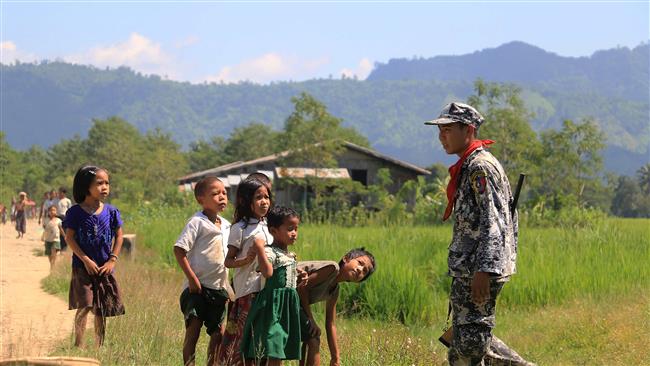
RNA - The Myanmar Times, the country's oldest English-language daily, stopped covering the crisis after one of its senior staff was fired over an article citing multiple gang rapes of Rohingya women by soldiers.
Sources inside the newspaper said that one editor has already resigned in protest and several other staff members were considering leaving.
"The paper withstood the pre-publication censorship of the junta era," AFP quoted an unnamed source as saying, adding, “There are major concerns about backsliding in the commendable gains made on press freedom in recent years."
The developments have prompted staff to post a notice in Tuesday's print edition saying the paper's "editorial policies are in the process of being clarified by management."
"Until then you may notice some gaps in our coverage," the staff added.
According to an internal memo seen by AFP, management ordered editors "not to analyze, comment, report or have opinion pieces on the following subjects until further notice: Rakhine State; Rohingya; and military actions in Rakhine state."
This comes as pressure is mounting on media to curtail critical coverage of army operations in the area. Foreign journalists have been banned from the area.
While there is more freedom under Myanmar's civilian leader Aung San Suu Kyi, monitors say many outlets still exercise self-censorship.
In recent weeks, allegations have emerged of troops killing Rohingya civilians, raping women and torching villages.
The diplomats, including those from the European Union and the United Nations and the US have recently called on Myanmar's government to launch a transparent inquiry into human rights violations in Rakhine state.
The state was again in the spotlight on October 9, when gunmen attacked three police outposts in the town of Maungdaw near the Bangladeshi border, reportedly leaving nine police officers dead.
Myanmar’s government blamed the incident on a Rohingya group, adding that the assailants made off with dozens of weapons and thousands of rounds of ammunition.
Suu Kyi said her government will not place blame for violence in Rakhine before investigators have gathered all the evidence.
According to the UN, Rohingyas are one of the most persecuted minorities in the world. The government denies full citizenship to the community and imposes severe restrictions on their movement, branding them illegal immigrants from Bangladesh, even as many trace their lineage in Myanmar back generations.
Many of the Muslims have been killed while tens of thousands have been forced to flee as a result of attacks by Buddhists.
847/940